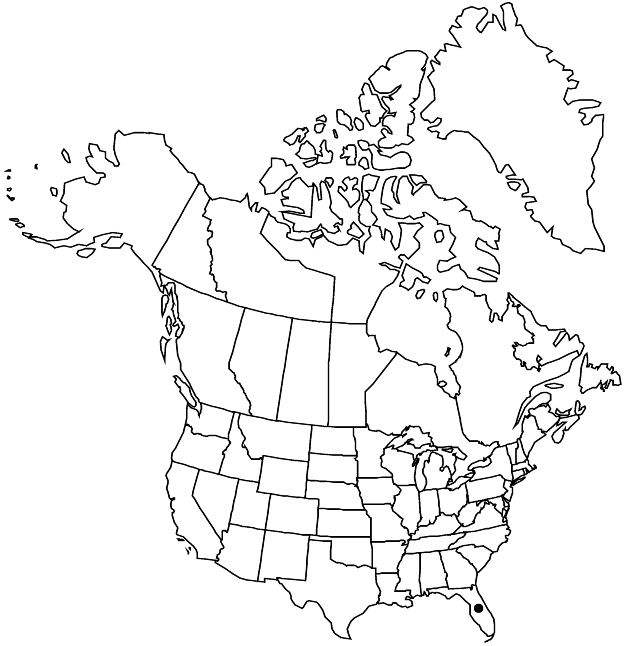Passiflora biflora
in J. Lamarck et al., Encycl. 3: 36. 1789.
Stems angular, minutely puberulent. Leaves not pungent, minutely puberulent; stipules linear, 2–5 × 0.5–1 mm, eglandular; petiole eglandular; blade roughly symmetric, 2–7 × 3–10 cm, shallowly to deeply 2-lobed, margins entire; abaxial fine veins prominently raised, abaxial nectaries not along leaf margins, usually in lines extending into leaf lobes on at least flowering stems. Floral bracts setaceous, 1–3 × 0.5 mm, margins entire, eglandular. Flowers: floral tube cuplike, 1–3 mm deep; sepals white, 13–17 × 4–6 mm; petals white, 9–13 × 4–6 mm; corona filament whorls 2, outer filaments green basally, yellow apically, linear-spatulate, laterally flattened, 5–8 mm. Berries blue-black, ovoid to ellipsoid, 20–30 × 15–20 mm. 2n = 12.
Phenology: Flowering Jun–Aug.
Habitat: Intact or disturbed tropical woodlands in loamy soil over limestone
Elevation: 0–10 m
Distribution

Fla., Mexico, West Indies (Bahamas), Central America, South America (Colombia, Ecuador, Venezuela).
Discussion
In the flora area, Passiflora biflora occurs only in southeastern Florida, where it is locally abundant and often an aggressive weed.
Selected References
None.